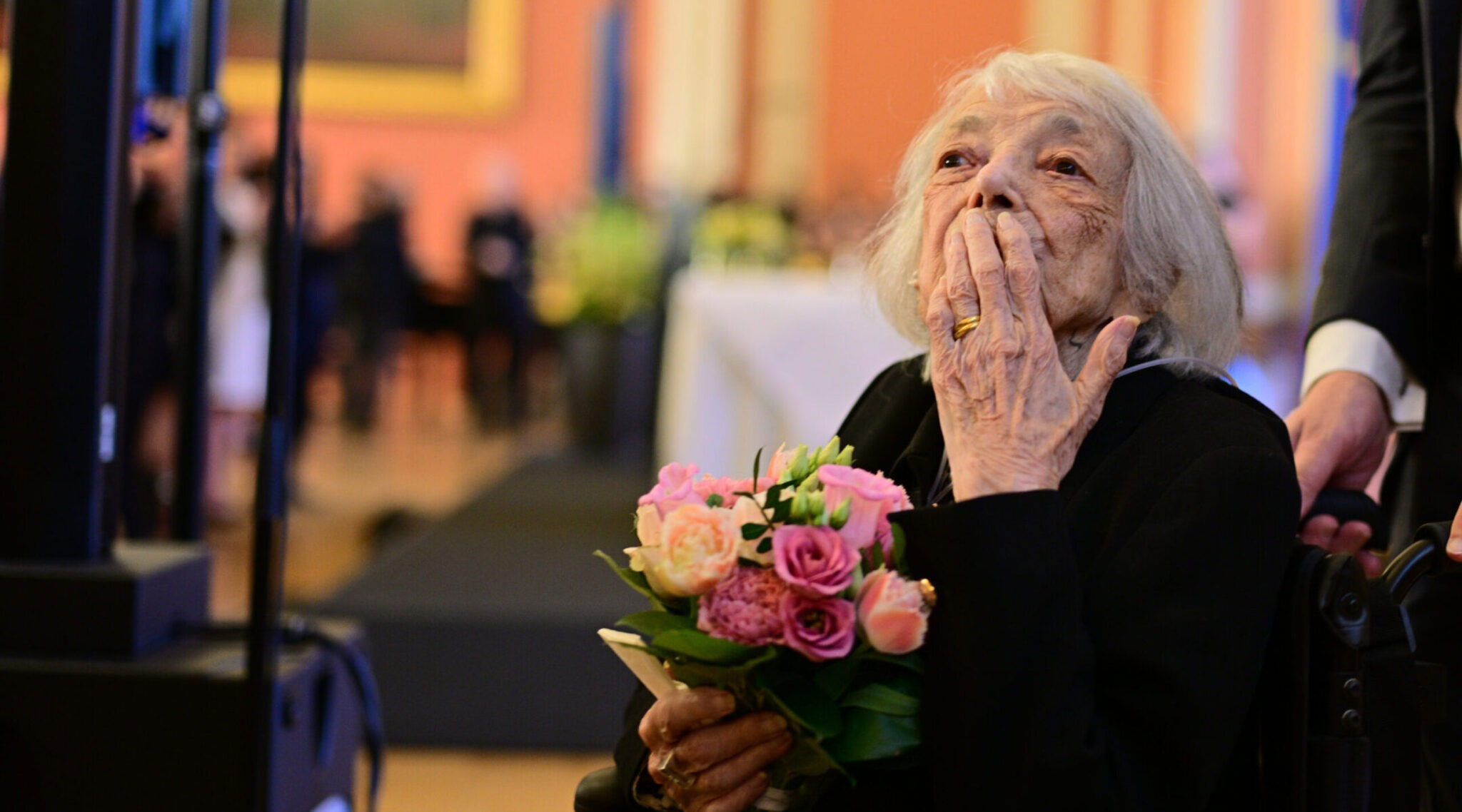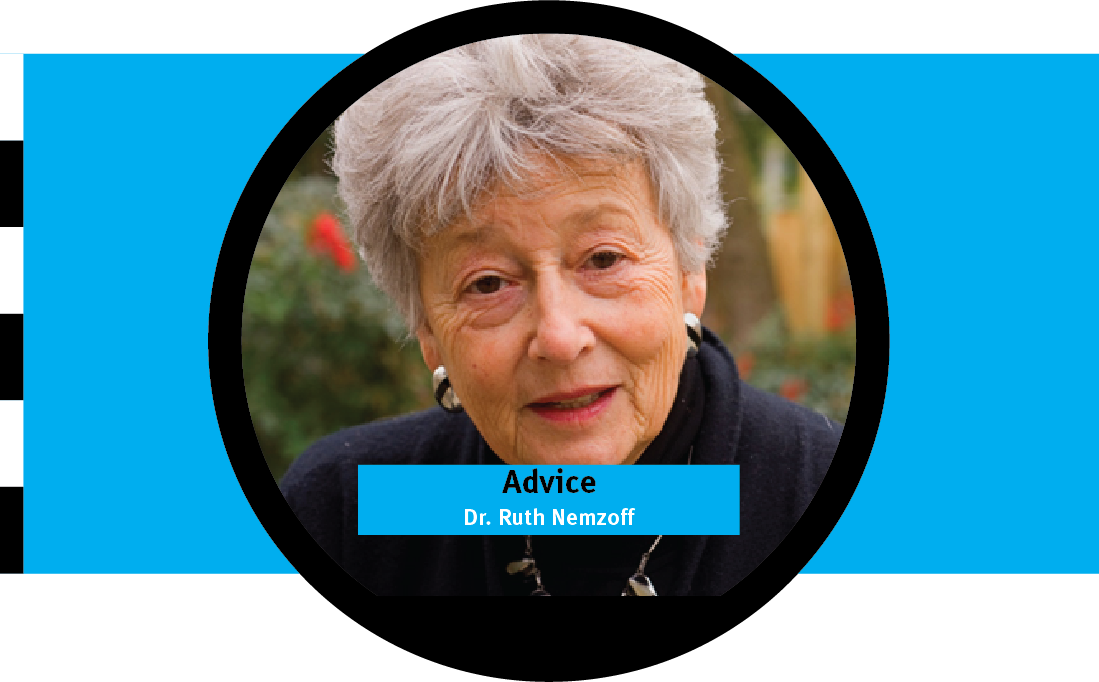By Steve Rosedale
Contributing Columnist
This is part six of Steve Rosedale’s column. Stay tuned each month for more of Steve’s story. For the previous chapters of Steve’s work, click here.
The Torah says, “…if you will obey HaShem and follow all His commands…He will bless all the work of your hands…” (Devarim 28)
When I was a junior in Walnut Hills High School I took a course in psychology that fascinated me. That summer I got a job as an orderly at Longview State Mental Hospital. There were three thousand six hundred patients, I never saw a doctor and only a few times did I see a nurse. The unit was staffed by just us barely trained orderlies (three-day orientation) and we were running the show.
I was on the receiving ward where the patients were a jumble of old men, young boys and a daytime nightmare. I remember when they brought Freddie in. He was handcuffed in front with these leather handcuffs. He was tall, deep set eyes and he stalked the floor. Wherever Freddie was I made sure to be on the opposite side of the room. After a week they handed me a razor and said “Shave Freddie.” With my heart in my mouth I followed him around for twenty minutes, cornered him when he sat down in a chair and said, “Freddie, I have to shave you.” My hands shaking, I started rasping on his beard with this dry razor. He grabbed my wrist, I saw my life flash before my eyes and thought this is the end! But he just gently helped me shave him, and when we were done he said, “thank you.” All of a sudden the monster fell away and I saw a Neshumah, a soul, a human being. Everything changed after that and I learned that we’re all just trying to cope. Sometimes we cope positively and constructively, and sometimes negatively and destructively. It made a deep impression on me.
It wasn’t until years later when I was at Brandeis that I learned from Morrie Schwartz his concept of “Therapeutic Milieu,” which posits that the environment, which includes both people and physical environment can exert a dramatic positive or negative effect on patients. At the time I didn’t understand the importance it would play in my life but I stored it away.
When my first wife and I, along with our new baby boy moved back to Cincinnati from Boston I ended up working for my father. My father-in-law was a partner in a local nursing home. I thought it would be fun to take some kids out and entertain the “old folks,” We had a great time and the residents loved it. We became regulars. They lost their administrator and my father-in-law asked me if I was interested in this as a business. I ended up leasing the facility and found that it was a perfect platform for Morrie’s therapeutic milieu. At the time nursing homes were very institutional. In fact, in any institution the institutional forces are coercive and in healthcare work to turn people into patients, “the fracture in bed fifty six, the colostomy on East Wing.” They don’t dehumanize their residents on purpose but that’s the end result. I started teaching Morrie’s ideas that if you treat people like human beings they will act like human beings. It became the hallmark of our philosophy of care and we developed a universal job description where everyone’s job is to “reach out with your heart to touch the hearts of our patients.”
I got a second facility to manage where I started from scratch. I trained all the staff in this rehabilitative concept. It was exhilarating and we gave great care. One day I got a call from old Dr. W. He was Jewish, still made house calls, was devoted to his patients and spoke in a gruff, guttural voice. One day he called me, “Rosedale, I’ve got two patients for you. You’re going to lose money, but from me you’ll take them.” I said, of course I would take them. “But they won’t live so long so you won’t lose too much,” he said.
Into our facility came the Reverend H, preacher of a small, Baptist church, and with him came his wife, his soul-mate, the leader of the choir, Tommy. Reverend H was in the final stages of Alzheimer’s Disease (though at the time we called it Senile Dementia) and Tommy was paralyzed from the waist down with terminal spinal cancer.
Tommy was a beautiful woman whose soul shined forth from her smile. She brought her organ into our chapel and when she would sing those spirituals you would swear that the angels came down to listen.
I put them on Irene’s wing. Irene was an old (I thought she was old at the time) marine nurse, tough as nails but compassionate from the heart. She and Tommy became fast friends. One day Irene came into my office crying and said, “Mr. Rosedale, I don’t know what to do, Tommy is so blue. She said to me ‘Irene, I’ll never get to see my daffodils bloom in the Spring’”.
The next morning, I remember it to this day, it was February 13th, Irene crept outside in the sleeting rain, in the dark before morning and planted plastic daffodils outside Tommy’s window. That morning the sun shone, Tommy saw her daffodils, and rolled into my office in her wheelchair and said to me, “Mr. Rosedale, the Lord’s not ready for me yet!” G-d love you Tommy, I said, you’re family, you can stay with us forever.
Sure enough, a few months later Tommy was still with us, and she saw her daffodils bloom in the spring. We were having a fund raiser for the Heart Association, called a rock and roll (as in wheelchair) marathon. We were having wheelchair races and I was calling the play by play live on radio through a telephone hookup. “They’re coming around the nurse’s station, Fanny H in the lead…” Tommy rolled up to me in her wheelchair and said, “Mr. Rosedale, I’m going to touch my toes.” I held my hand over the phone and whispered, Tommy, I’m on the radio, let’s talk about this later. I’m thinking, paralyzed, what’s she talking about. Of course she ignored me, waited until another break in my sports casting and quietly said, but with that look in her eyes, “Mr. Rosedale, I’m going to touch my toes!” Staff started gathering around cheering her on. I held my hand over the phone and told them to take Tommy to the day room. Of course they didn’t and a few minutes later, unbelievably, Tommy started to get up from the wheelchair, we started screaming and watched as she bent over and touched her toes. That summer she walked out of the facility with a walker, lived for several years in an Assisted Living and then returned to us when she was ready to pass away.
After that incident I called the staff together and told them that when they can be the vehicle for G-d’s miracles this wasn’t a job, it was a mission, and it’s been that way ever since. When I put on a kippah I realized that we were put on this earth to use our talents and energies to make a Kiddush HaShem, a sanctification of G-d’s name and that every day we have the opportunity to do so. It’s never easy and you lose as well as win.
Another thing I learned is that when you’re in pain you have two choices. You can let it turn inwards, become depressed, or you can try and use it in a positive way. After my son’s head injury, I had to do something with the heavy emotions. I ended up getting involved in the Ohio Brain Injury Association, after a year or so became its President and worked on improving conditions and treatment for those with brain injuries. At one of our annual conventions I was giving a speech when someone came up and grabbed onto my jacket. He said, “I won’t let you go until you help my son.” What could I do, I finished the speech with him hanging onto my jacket.
Afterwards he showed me a picture of this handsome young man and then I knew what the next picture would be; on a gurney, shaved head, tubes, and in a coma. He said Larry, his son, had been in rehab eighteen months and still didn’t recognize him, walk, or feed himself. His father couldn’t take it anymore and said I had to help. I told him we ran nursing homes not traumatic brain injury centers. It didn’t matter to him; he wouldn’t let me go until I agreed to see what I could do.
I had him transferred to a nursing facility in Clifton, one of my favorites. Not the most beautiful, but a wealth of staff with beautiful hearts. My wife worked there as a psych counselor. They gave him intensive therapy, and most important, CPR for the soul. “Ya just gotta love ‘em!” Motivation does wonderful things and in six months he was walking, talking and his father was happy. After a few years he was ready to ‘graduate.’ We found an apartment for him and his roommate, Barry. Barry was a young black man who shot himself in the head, blinding himself. Not a happy camper. They were going to live together. Larry had no memory but could see. Barry remembered but was blind. The nursing version of the odd couple.
At their graduation Barry said that in the beginning he hated us because we wouldn’t let him die; but then he turned on this beautiful smile and said, “but you taught me to love myself.” Somewhere out there I hope the two of them are still doing well. I did hear that Larry is driving so I’d be careful when driving in the Clifton area.
We’re all thrown a curve here or there, sometimes it feels like you are life’s punching bag. The Gemara explains that we’re given tests, trials and tribulations meant to help us grow, reach beyond where we’re holding as Avraham did in the trial of bringing his son to the altar. It’s up to us to use our experiences, to question who we are, what our life has been and find the areas to grow in. I wouldn’t be me without Vietnam, without divorce, without the separation from my kids. I wouldn’t have made the changes that opened up a new world of understanding and brought the blessings that came with it. Nor would I have found the other half of my heart, my life partner, and the reason that on the bleakest days there’s always a ray of hope and love.




